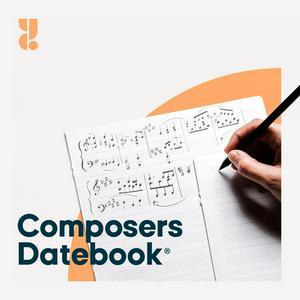Synopsis
On this date in 1814, Ludwig van Beethoven conducted the premiere performance of his Symphony No. 8. As the scherzo movement of his new symphony, Beethoven recycled a tune he originally used as a musical salute to Johann Nepomuk Maelzel, the inventor of the metronome. For a time, Maelzel was Beethoven’s friend and occasional collaborator on concerts and various mechanical projects.
Beethoven used Maelzel’s metronomes to add precise, if sometimes debatable, tempo markings to some of his earlier works. Some conductors choose to ignore these metronome markings, since they came after the fact of composition and at a time when Beethoven was increasingly deaf. In fact, in addition to metronomes, the versatile Maelzel also supplied the Beethoven with ear trumpets — the 19th-century version of hearing aids.
Perhaps Beethoven was using one of those ear trumpets when someone asked him why his Symphony No. 7 was more popular in Vienna than his Symphony No. 8. “Because the Eighth is so much better,” he growled in reply.
Closer to our own time, American composer Leroy Anderson, who lived from 1908 to 1975, immortalized the tick-tock of a mechanical timekeeper in his piece, The Syncopated Clock. Anderson was a master of the musical miniature, creating dozens of witty pieces with titles like Plink, Plank, Plunk, Bugler's Holiday, and Fiddle Faddle.
Music Played in Today's Program
Ludwig van Beethoven (1770-1827): Symphony No. 8; Berlin Philharmonic; Herbert von Karajan, conductor; DG 429 036
Leroy Anderson (1908-1975): The Syncopated Clock; St. Louis Symphony; Leonard Slatkin, conductor; BMG/RCA 68048


